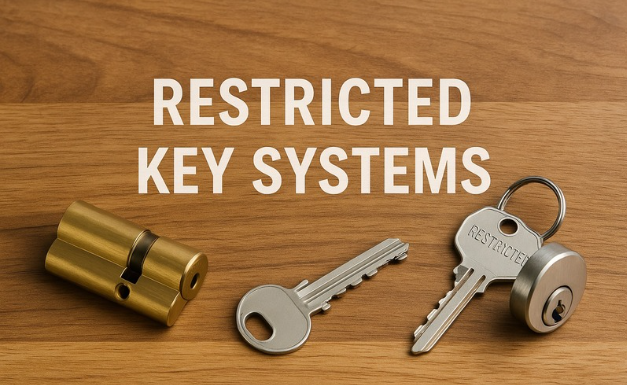Complete Guide to Secure Key Control & Access Management
What They Are, How They Work, and Why They Matter
Table of Contents
- Introduction
- What Is a Restricted Key System?
- Key Features and Components
- How Restricted Key Systems Work
- Benefits of Using Restricted Key Systems
- Potential Drawbacks & Considerations
- Best Practices & Legal/Operational Aspects
- Choosing a Restricted Key System
- Maintenance & Key Management Tips
- Conclusion
1. Introduction
Security is about more than just locking doors—it’s about controlling who has access, when, and how. In environments where unauthorized entry can lead to theft, liability, or safety hazards, having fine-grained control over access is indispensable. Restricted key systems are one of the most reliable mechanical ways to enforce that control.
In this post, I’ll explain what restricted key systems are, how they differ from ordinary keys, their advantages and disadvantages, and how to choose and manage one responsibly. By the end, you should be able to decide whether a restricted key system is right for your home, business, or institution—and how to implement it well.
2. What Is a Restricted Key System?
A restricted key system is a key, lock, and keyway system designed so that key blank duplication is legally or physically controlled. Only authorized locksmiths or the original authority/manufacturer can duplicate the keys.
Key elements:
- The keyways are proprietary: non-standard shapes or profiles, often protected by patents or trademarks.
- The key blanks (the uncut keys) are restricted: only certain locksmiths or the manufacturer can supply them.
- Authorization is required for copying: proof, ID, or written seal/signature may be needed to request duplicates.
- Records and tracking are kept for all keys.
3. Key Features and Components
To understand what makes restricted key systems different, here are the major features/components:
| Component | What It Is | Why It Matters |
| Proprietary Keyway / Profile | Unique shape of key blade; prevents generic blanks from fitting. | Stops casual or unauthorized duplications. |
| Restricted Key Blanks | Blanks that are only distributed by authorized parties. | Ensures only validated locksmiths can cut keys. |
| Patent / Trademark Protections | Legal or IP protections over design. | Adds legal weight to enforcement and deterrence. |
| Key Control Policy | Rules about who can request a key, what proof is needed, etc. | Prevents misuse, “secret copies,” or loss of control. |
| Tracking and Auditing | Logs: who has what key, when duplicates are made, etc. | Accountability, easier to manage security incidents. |
4. How Restricted Key Systems Work
Here’s a typical workflow / operation of a restricted key system:
- Design & Installation
- Choose lock hardware with proprietary/restricted keyway.
- Install locks in all required locations (doors, gates, etc.).
- Issuing Master Keys / Change Keys
- Define master keying hierarchy (if needed).
- Assign who gets which key.
- Key Duplication Protocols
- Duplication only via authorized locksmith or manufacturer.
- Must verify identity, authorization, often via written request.
- Record-Keeping
- For every key issued: record the person, date, serial number.
- For duplicates: log origin (who requested, who approved).
- Revocation / Recovery
- When a key is lost or an employee leaves: decide whether to revoke access (e.g. rekey or swap cores).
- Use audit records to know which locks might have been compromised.
5. Benefits of Using Restricted Key Systems
Here are the main advantages:
- Controlled Duplication: No unauthorized copies floating around.
- Higher Security: Proprietary profiles often come with stronger feature sets (anti-pick, anti-bump).
- Reduced Risk of Unauthorized Entry: Better peace of mind for homes, commercial properties, apartment buildings.
- Accountability & Auditing: If something goes wrong, you can trace who had what key.
- Long-Term Cost Savings (sometimes): Fewer rekeying or changing locks, less risk of breach costs.
6. Potential Drawbacks & Considerations
Restricted key systems aren’t perfect for every situation. Be aware of:
- Higher Upfront Costs: Patented or proprietary locks and keyways cost more.
- Duplication Delay: Since only authorized providers can duplicate, expect lead times and possibly requirements for documentation.
- Vendor Lock-in: You may be tied to one locksmith or manufacturer for parts, blanks, or replacements.
- Risk of Losing Control: If records aren’t kept well, or keys are mismanaged, security can still be compromised.
- Legal / Patent Expiry Issues: Over time, patent protections may expire, which can reduce the “restricted” nature of a keyway.
7. Best Practices & Legal/Operational Aspects
To get the full value of a restricted key system, here are best practices:
- Develop a key control policy: who can request keys, what documentation is needed, how to return or revoke keys.
- Keep precise records and perform audits regularly.
- Only deal with reputable locksmiths or manufacturers who understand restricted key systems.
- Check local laws or codes (some jurisdictions may have rules around locking systems, master keying, patent law).
- Plan for emergencies: lost keys, contractor access, etc. Consider backup procedures.
- Ensure uniformity: when making additions or renovations, maintain the same system or ensure compatibility.
8. Choosing a Restricted Key System
When evaluating which system to use, consider:
- Security Level Required: Residential vs commercial vs high-security vs institutional.
- Volume of Keys & Users: More users = more risk, more administration.
- Master Keying Needs: Do you need levels of access control (e.g. building manager, janitor, staff, tenant)?
- Manufacturer Reputation: Track records, warranties, availability of replacement parts/blanks.
- Cost Over Lifecycle: Not just purchase but maintenance, duplication, rekeying.
- Future Flexibility: Can the system be expanded? Can you add new restricted profiles without replacing everything?
9. Maintenance & Key Management Tips
- Label keys clearly (without revealing sensitive info).
- Store master keys and critical spares securely.
- Regularly review who has keys, especially when staff leave or tenants change.
- Use tamper-proof stickers or seals if needed.
- Periodically audit access logs and review system integrity.
- Replace or rekey locks if you suspect unauthorized duplication or compromise.
10. Conclusion
Restricted key systems provide strong mechanical security by enforcing controlled key duplication, proprietary keyways, and accountability. They’re especially valuable when access control is critical—commercial buildings, multi-tenant facilities, institutions, and sensitive or high-risk locations.
That said, they come with higher upfront and operational overhead, so it’s important to evaluate your needs, plan carefully, and follow sound policies. If done right, a restricted key system gives long-term peace of mind: knowing who has access, minimizing risk, and maintaining security.
FAQs
Q: Can someone duplicate a restricted key without authorization?
A: Not legally or through authorized channels—doing so would be violating patent/trademark rules, and locksmiths bound by those restrictions would refuse. Unauthorized duplication might happen illegally, but that undermines the system’s purpose.
Q: Are restricted key systems better than electronic access control (key cards, biometric, etc.)?
A: They serve different purposes. Electronic systems offer flexible revocation, audit trails, remote control, etc. Restricted keys are mechanical, less vulnerable to power or tech failures, often more durable, but less flexible for dynamic access changes. Many facilities use a combination (hybrid).
Q: Do patents protect restricted keyways indefinitely?
A: No—patents expire after a certain period. Once expired, others may legally produce blanks or compatible keyways. However brands may also rely on trademark or design protections.
For immediate assistance: 📞 (902) 434-5625
information: 🌐 atlanticlocksmith.ca 📧 Info@atlanticlocksmith.ca
Visit our location: 📍 798 Main Street, Dartmouth, NS
Your security is our priority. Your satisfaction is our guarantee.
Please visit our Services Page Here – atlanticlocksmith.ca/services


